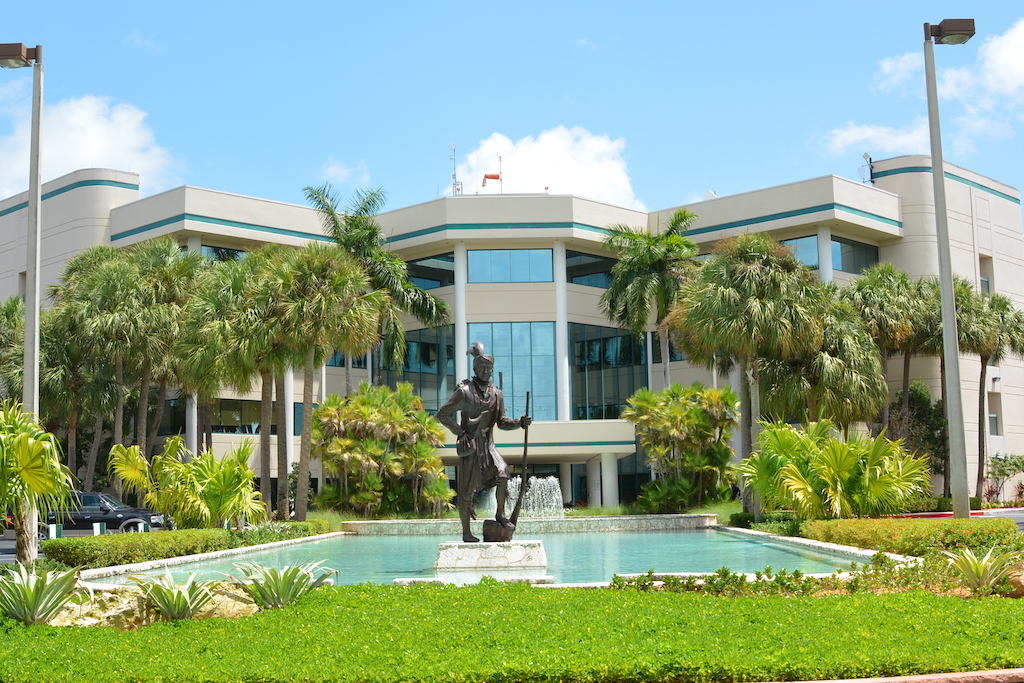Seminoles Today
The opening of the first “smoke shop” (offering discount, tax free tobacco products) in 1977 gave the Seminoles a stable enterprise which continues, even today, to bring substantial revenue into Tribal coffers. The opening of the Tribe’s first high-stake bingo hall in Hollywood, shortly after community activist James Billie’s first election as Tribal Council Chairman, was a national first.
The success of Seminole gaming against legal challenges opened the door for dozens of other American Indian tribes to follow suit. Today, gaming is, by far, the number one economic enterprise in all of Indian Country.
The years under James Billie’s direction have seen the Seminole Tribe of Florida mature both politically and financially. The addition of two new reservations (Tampa and Immokalee) brought Seminole federal trust holdings in Florida to more than 90,000 acres. The opening of a new hotel (Sheraton Tampa East), entry into the lucrative citrus market, opening of the new Ahfachkee Indian School, development of the Ah-Tah-Thi-Ki Museum and Kissimmee-Billie Swamp Safari tourist attraction and the expansion of the profitable smoke shops and gaming enterprises have brought the Seminoles closer to their stated goal of self-reliance. In 1992, The Tribe collected a settlement on the land claim it had filed in 1947.
Today, most Tribal members are afforded modern housing and health care. The Seminole Tribe spends over $1 million each year on education, alone, including grants-in-aid to promising Tribal college students and the operation of the Ahfachkee Indian School. Over 300 Tribal members are employed by the Seminole Tribe in dozens of governmental departments, including legal and law enforcement staffs. Dozens of new enterprises, operated by Tribal members, are supported by both the Tribal Council and Board.
As established in the Seminole Tribe of Florida’s constitution, the Tribal Council is the chief governing body, composed of a Chairman, a Vice-Chairman and Council Representatives from each reservation. Today, the Council administers the Seminole Police Department, the Human Resources programs, the Tribal gaming enterprises, citrus groves, the Billie Swamp Safari, the Ah-Tah-Thi-Ki Museum and the majority of the Tribe’s cigarette-related enterprises. The Seminole Tribe of Florida’s Legal Services Department administers a public defender’s office, Water Resource Management, and the Utilities Department.
The government of the Seminole Tribe of Florida is exempt from all federal or state taxes, although individual Tribal members are liable for the same state and federal taxes as any citizen.


